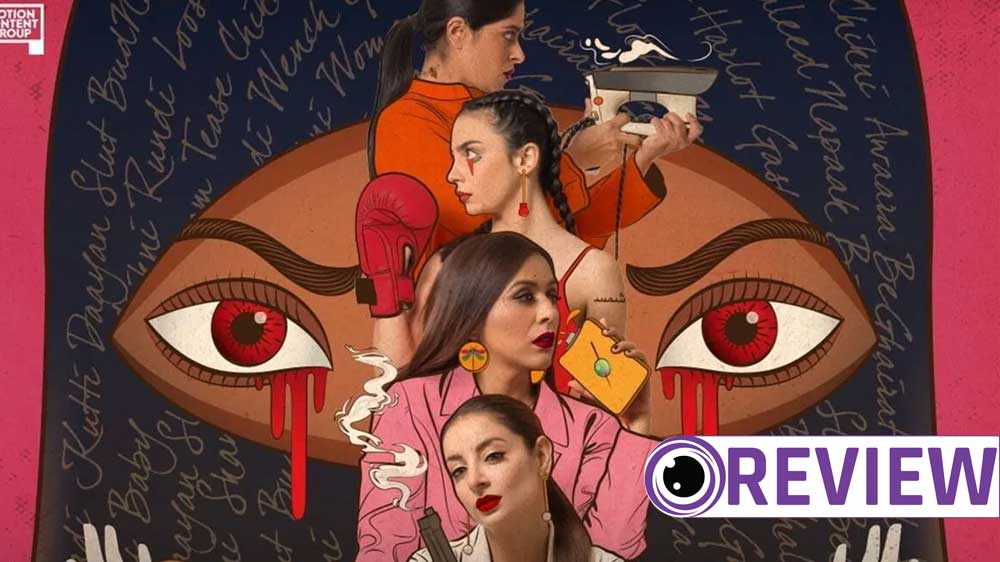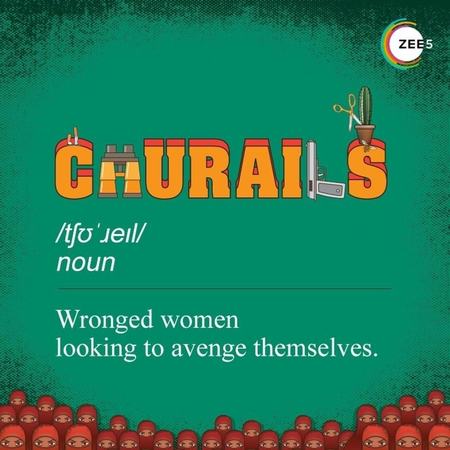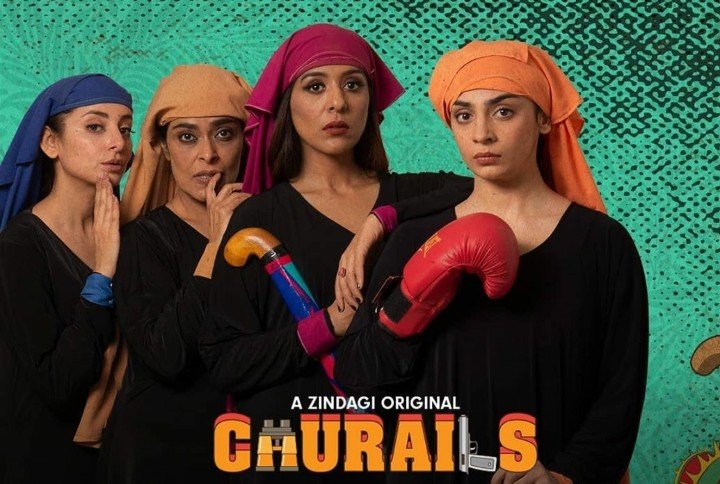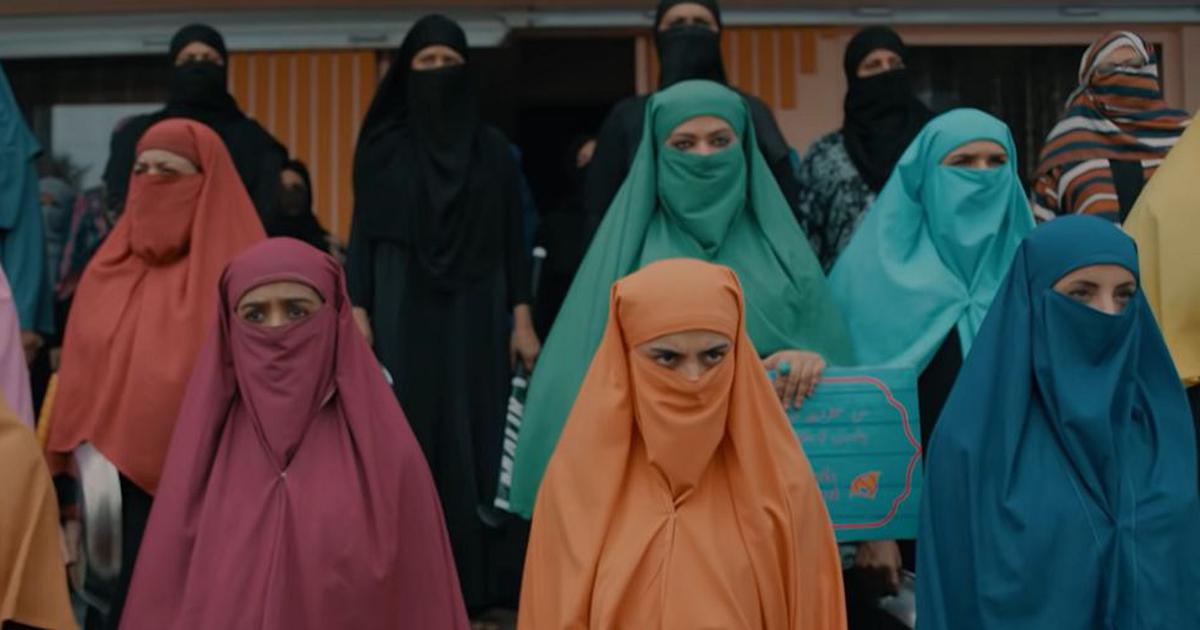Historically the term ‘witch’ has been used to define women who aren’t held down by the status quo. A way to alienate anyone who dares break the norms. As a history nerd, that’s the first definition I thought of when I saw the promo for web series Churails, which is what everyone is talking about these days.
The simplest way to describe it could be – what if a Pakistani drama got the Netflix Original treatment? Now we know.
Is it worth a watch? Is it just geared towards feminist issues? Is it even entertaining? We answer these questions and then some more. Very mild spoilers follow.
The Premise
The show itself defines Churails as wronged women looking to avenge themselves. But despite being all for a bunch of badass women defeating patriarchy, the show’s trailer had left me more than a little disappointed. A bunch of women in burqas beating up men? How many times have we seen this scene playing out (spoiler: a lot)?
I’ve seen enough of that kind of content to justify being terrified of another caricature of feminist voices. One that capitalizes on the clothes women wear and refuses to move the conversation to the very real issues that lay beyond our commercial definition of empowerment.
Did this show validate my worst fears?
Introducing the Churails
The show’s introduction to our four main Churails definitely left me wanting more. The “two resident elite ladies” of the show are:
- Sara (Sarwat Gilani) – a lawyer turned doting housewife,
- Jugnu (Yasra Rizvi), divorced, alcoholic, with troubled family background. She’s also Sara’s bestie.
And joining them – in a pretty unbelievable coincidence I might add – are:
- Batool (Nimra Bucha) – a freed convict who just finished her sentence for murder,
- Meherbano – who juggles her father’s “good girl” expectations with her own dreams of boxing and desires to find love (and abs).
In a clear plot device, the four come together and decide – quite spontaneously I might add – to start a business (a clothing shop) to avenge wronged women.
But in its hurry to move on and get to the rest of the story, the show robs its four main characters of the journey towards their decision.
Activism is not an easy journey. But our four Churails seem to make that decision with no thoughts to its consequences or internal turmoil.
In their quest to settle scores with men, there are various points at the story where the protagonists doubt their motives and intentions. But I would’ve liked to see more of the emotional impact such decisions can have, particularly in the characters of the baby Churails – who are given no development on how they are impacted by the decisions they make and obey every day.
This show also makes you wonder about the link between one’s social activism and class. Does a poor woman have the same motivations as a rich socialite? Churails targets class divides in Pakistan by exploring the consequences that come with not having money and power to hide behind.
This is one of the reasons why Asim Abbasi’s Churails shouldn’t be written off. Yet, certain subplots leave you wanting in the show. Sara and Jugnu seem to be going into this decision with no thought of the consequences that can unfold. But Is that because they’ve never lived life with consequences? As we see throughout the show, both have connections in high places – ones that will save them time and time again from the horrors that are to come.
Is the show any good?
Minor spoilers follow.
The 4 Churails decide to start a burqa store called “Halal Designs” to pose as a front for their real investigative business – exposing cheating husbands.
But in a world that thrives in starting and ending all conversations around empowerment on the length of a women’s sleeves, did we really need another storyline that capitalizes on being either “Halal” or “Haram” and using the burqa as a tool to further their narrative?
The 4 main characters notwithstanding, its what this series does with the supporting cast that makes it more nuanced than just another feminist show.
Following these 4, are a bunch of baby Churails. There’s too many to list, but a few deserve a mention. The subtle yet impactful arc of Pinky and Babli’s relationship, and the male allies they pick up on the way, the ramifications of their decisions ‘to fight the good fight.’ These things are brilliantly depicted.
https://www.instagram.com/p/CDlibx1pJTy/
Here’s what we can tell you. The first 3 episodes feel like world-building. But its the rest of the episodes when Churails seems to shine. It is then that the show transforms from ‘oh-right-just-another-feminist-show’ into a gripping narrative about social issues that are open to interpretation. In fully diving into its storyline – one that balances gore with raw emotion and horror with romance – the show manages to execute its political commentary with flawless ease.
“Mard Thay Issiliye Aurat Ke Liye Rukawat Nahin Banna Chahtey They”
The show features 3 male allies for our Churails – Dilbar, Shams, and Inspector Jamshed.
Shams’ character stands out from the start and its not hard to see why. It was really this above line that cemented his place as to how males can support feminism. Don’t be a hindrance, but be there for them when they need you.
These are women who don’t need ‘big strong men’ to do their job for them. This is not a man’s fight, and they don’t feel the need to make it so. Rather they are happy to simply be there, extend their help when needed and let the women take center stage. It’s a reminder that not everyone is fighting the same fight. While support is undoubtedly important, it is equally vital to not overshadow someone else’s struggle.
In the gentle but watchful Shams, the lovestruck Dilbar, and the brash but respectful Inspector J, we are reminded that men do not need to be given a medal simply for existing.
https://www.instagram.com/p/CD3yoqmHhhq/
The struggle between right and wrong
Perhaps the best part of Churails is its depiction of life as gray. No longer do we see a debate on feminism existing solely in the binaries.
Sania Saeed’s and Sarmad Khoosat’s exploration of a decades-long marriage broken by infidelity turns into an explosive story arc that will have you reeling. Let’s just say you can never have Nihari again. These two veterans of the Pakistani showbiz industry prove why they are the best at what they do. And rest assured, you have NEVER seen them like how they are depicted in Churails.
To expose or not to expose a person’s infidelity. This is another theme that is explored in the show too. With deep personal costs for everyone involved. When both sides are equally at risk, who’s sanctity do you preserve?
At the end of the day, Churails is a show that doesn’t tell us the rights and wrongs. It shows us characters on a journey. They stumble and fall, only to right themselves and march on again. They make decisions – good or bad – and that’s for you to decide. In characters like Baby Doll, Pinky, and Babli, the show deals with representation without ever creating caricatures out of their characters.
Of course, it’s not free from critique. Should a second season ever arrives, I hope to see the script move past it’s somewhat forced activism and allow characters other than Sara and Jugnu to really shine.
Is Churails a feminist show? I think so. But it is only when it stopped trying so hard to be one and came into its own storyline (post-episode 4) that it really became one.
ALSO READ
‘Churails’ Leaves People Divided Over Its Explosive Trailer [Video]











